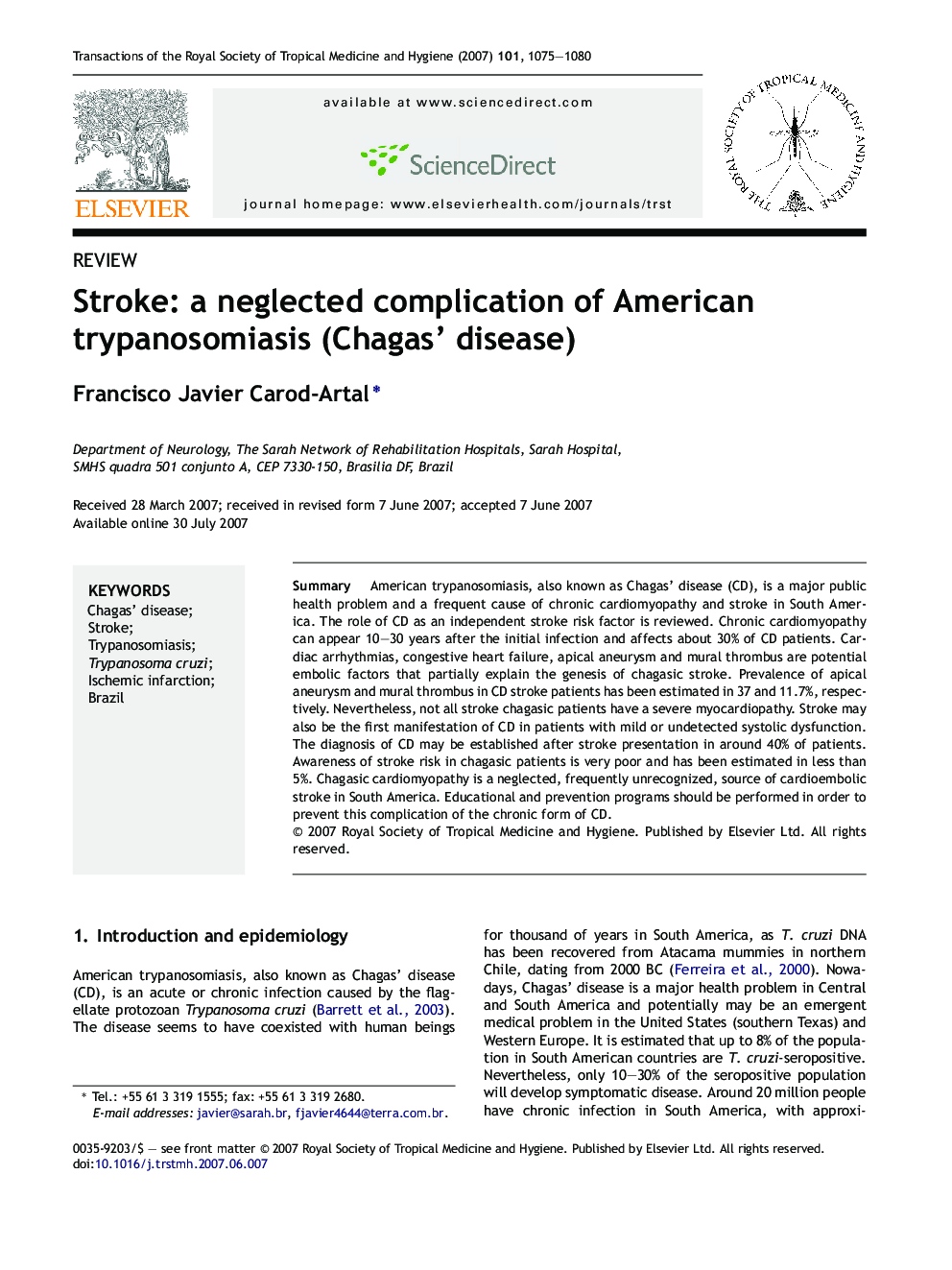| Article ID | Journal | Published Year | Pages | File Type |
|---|---|---|---|---|
| 3420989 | Transactions of the Royal Society of Tropical Medicine and Hygiene | 2007 | 6 Pages |
Abstract
American trypanosomiasis, also known as Chagas' disease (CD), is a major public health problem and a frequent cause of chronic cardiomyopathy and stroke in South America. The role of CD as an independent stroke risk factor is reviewed. Chronic cardiomyopathy can appear 10-30 years after the initial infection and affects about 30% of CD patients. Cardiac arrhythmias, congestive heart failure, apical aneurysm and mural thrombus are potential embolic factors that partially explain the genesis of chagasic stroke. Prevalence of apical aneurysm and mural thrombus in CD stroke patients has been estimated in 37 and 11.7%, respectively. Nevertheless, not all stroke chagasic patients have a severe myocardiopathy. Stroke may also be the first manifestation of CD in patients with mild or undetected systolic dysfunction. The diagnosis of CD may be established after stroke presentation in around 40% of patients. Awareness of stroke risk in chagasic patients is very poor and has been estimated in less than 5%. Chagasic cardiomyopathy is a neglected, frequently unrecognized, source of cardioembolic stroke in South America. Educational and prevention programs should be performed in order to prevent this complication of the chronic form of CD.
Related Topics
Life Sciences
Immunology and Microbiology
Applied Microbiology and Biotechnology
Authors
Francisco Javier Carod-Artal,
